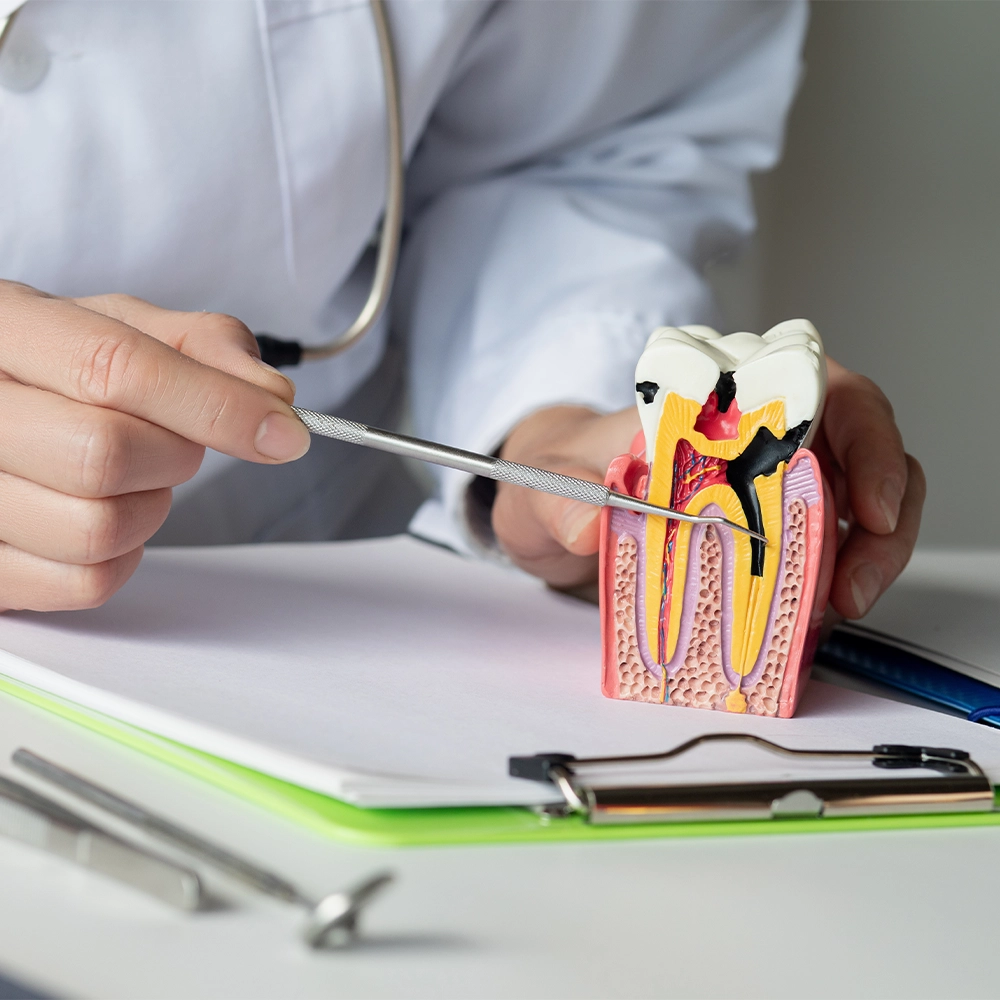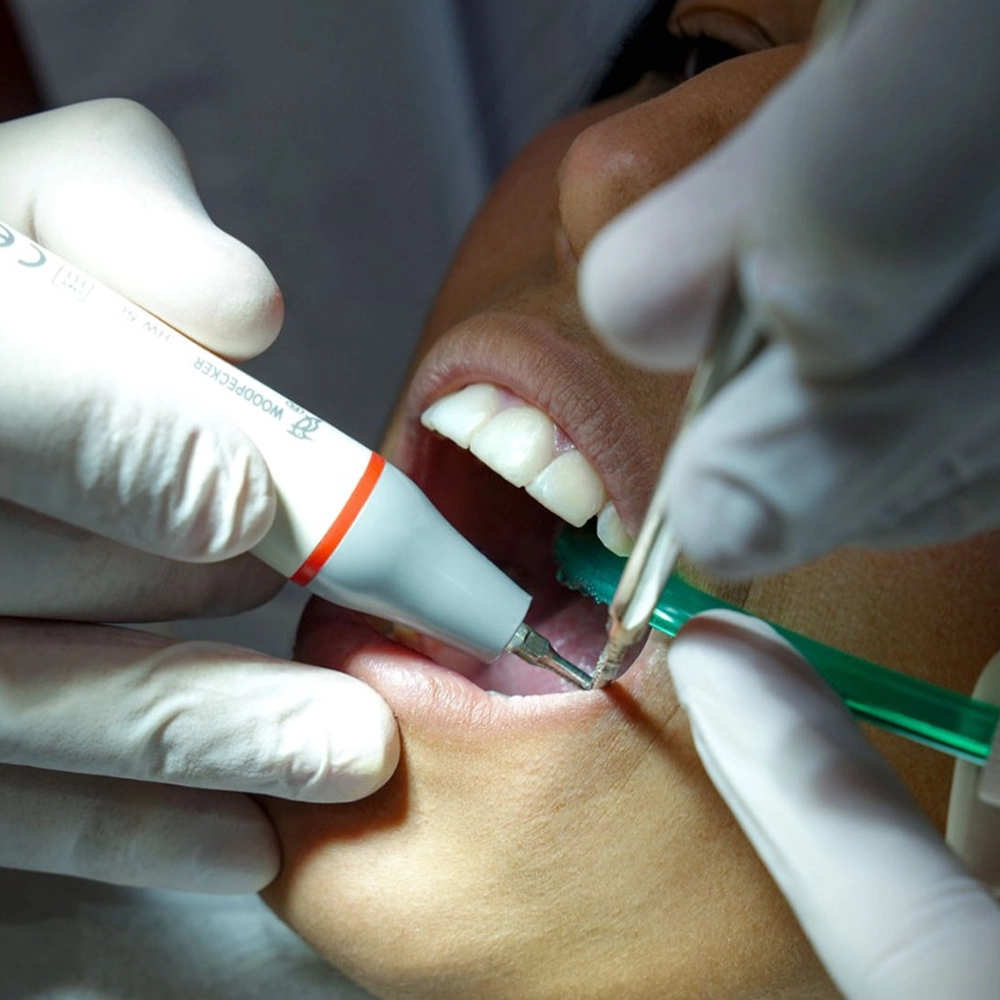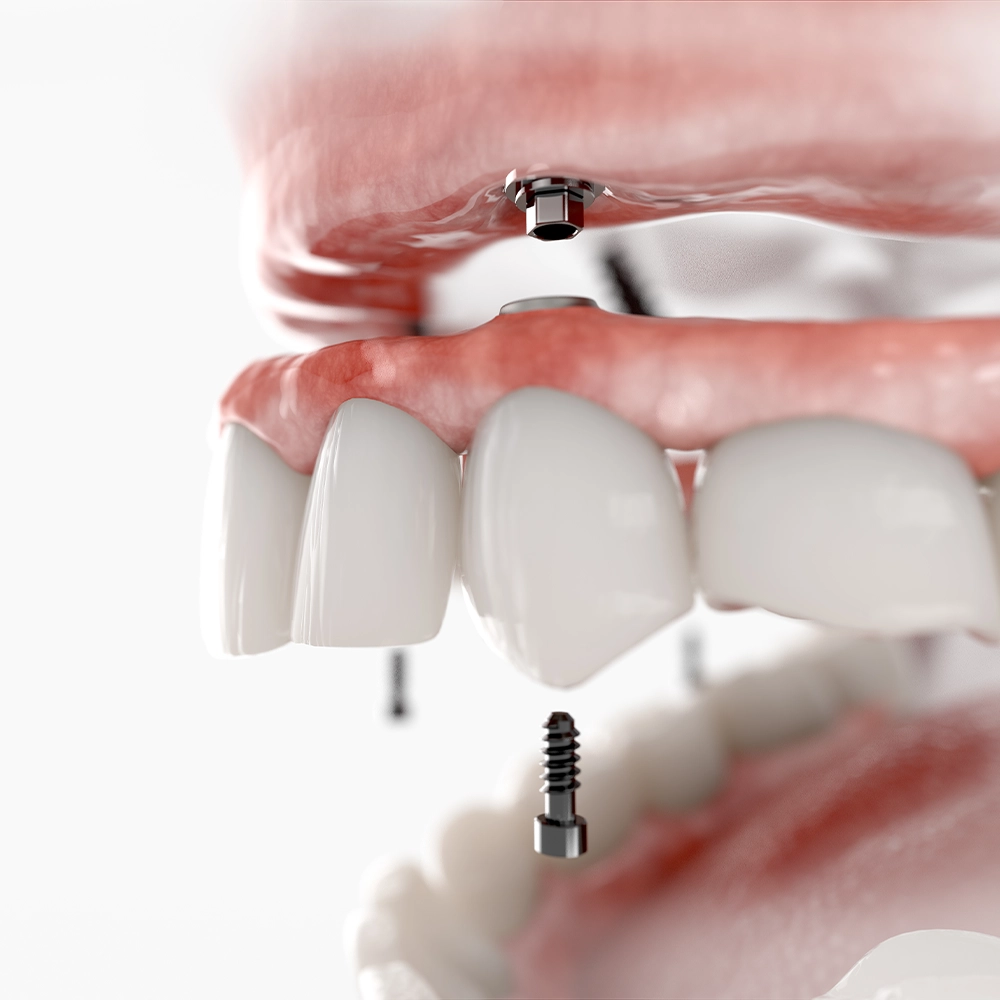
Dental Implants in Turkey
Permanent Tooth Replacement
How Much Does Dental Implant Treatment Cost?
5 Basic Steps of Dental Implant Treatment
Discover the five steps of an implant procedure at Cinik Dental.

Why People Choose Dental Implant Treatment in Istanbul, Turkey?
Turkey is a popular choice for dental implants because it offers affordable prices and high-quality dental care.
Affordable Prices
Lower costs compared to many countries.
Highly Skilled Dentists
Expertise and experience in dental implant procedures.
Modern Clinics
Equipped with the latest technology and international standards.
Comprehensive Packages
All-inclusive options covering consultation, treatment, accommodation, and transport.
Quick Treatment
Shorter waiting times for procedures.
Tourism Opportunities
Combine dental treatment with a vacation in a culturally rich and beautiful country.
High Satisfaction
Positive feedback from numerous international patients.
Personalized Care
Tailored treatment plans to meet individual needs.
Strong Reputation
Well-regarded destination for dental tourism globally.
Brands
Our clinic uses FDA-approved and clinically tested implant brands, including Straumann Roxolide from Switzerland, Nobel Biocare from Sweden, ensuring high-quality, long-lasting dental implant.
Trusted by Celebrities & Influencers Worldwide
Chosen by Celebrities and Leading Influencers
Best Dental Implant Brands Worldwide – What Defines Quality & Reliability?
Top factors that define the best dental implants include:

Some of the best dental implant brands worldwide include:

Benefits of Dental Implants
Discover why millions of patients choose dental implants as the gold standard for tooth replacement.

Bone Loss Prevention
Dental implants support and stimulate jawbone tissue, maintaining its strength and preventing deterioration.

Tooth Displacement Prevention
By filling gaps, dental implants stop neighboring teeth from shifting, preserving natural alignment and appearance.

Functional and Aesthetic
By re-establishing the natural symmetry of your teeth, it enhances the overall appearance of your smile. It also corrects bite function, makes chewing easier, and eases pain while eating.

Strong & Durable
The implants become firmly anchored as the jawbone heals around them, resulting in excellent stability and durability. With a proper maintenance routine, this treatment will last a long time.

Bone Loss Prevention
Dental implants support and stimulate jawbone tissue, maintaining its strength and preventing deterioration.

Tooth Displacement Prevention
By filling gaps, dental implants stop neighboring teeth from shifting, preserving natural alignment and appearance.

Functional and Aesthetic
By re-establishing the natural symmetry of your teeth, it enhances the overall appearance of your smile. It also corrects bite function, makes chewing easier, and eases pain while eating.

Strong & Durable
The implants become firmly anchored as the jawbone heals around them, resulting in excellent stability and durability. With a proper maintenance routine, this treatment will last a long time.
Why Dr. Cinik Dental Implant Treatment Is the Best Choice
Meet the specialists who will take care of you
Internationally Trusted Implant Brands
Dr. Cinik Dental uses globally recognized, FDA-approved and CE-certified implant brands such as Straumann® and Nobel Biocare®, ensuring long-term safety and durability
Expert Dentists & Evidence-Based Treatment
Treatments are planned and performed by experienced dentists using evidence-based protocols and modern digital planning systems.
Advanced Technology & Modern Clinics
State-of-the-art clinics equipped with 3D imaging, digital smile design, and precision implant technology meeting international standards.
All-Inclusive Dental Implant Packages
Comprehensive treatment packages covering consultation, dental procedures, accommodation, and local transportation for international patients.
Affordable Prices Without Compromising Quality
High-quality dental implant treatment at significantly lower costs compared to the UK, USA, and Western Europe.
Fast & Efficient Treatment Process
Short waiting times and optimized treatment timelines allow patients to complete procedures in fewer visits.
Personalized Care for Every Patient
Each dental implant treatment plan is tailored to individual needs, bone structure, and long-term oral health goals.
Proven Patient Satisfaction & Global Reputation
Trusted by thousands of international patients, Dr. Cinik Dental is a well-regarded destination for safe, reliable dental implant treatment.
Meet Our Expert Dentists
What Do We Offer as a Package?
- Panoramic X-ray or CBCT Tomography and all necessary medications
- Smile Design
- Accommodation at 5* Hotel including breakfast
- All in-city transfers with VIP cars (airport-hotel-clinic-airport)
- Interpreter
- 24/7 Assistance
Our Implant Services & Types
Implant Services
| Services | Description |
|---|---|
| Single-tooth dental implants | Replaces a single tooth with an implant and a crown. Single crowns use: cemented crowns. |
| Multiple-tooth implants | Used when missing a few teeth; custom-made replacement teeth fill the gaps. |
| Full-mouth dental implants | Replaces all teeth using all-on-4 or all-on-6 procedures, preserving jawbone health and reducing costs. Full mouth implants use: screw-retained crowns. |
Implant Types
| Type | Description |
|---|---|
| Temporary Crowns | Used until the permanent crown is ready; can be made of stainless steel or acrylic. Mostly for root canal/extraction. |
| Porcelain/Ceramic | Durable and natural-looking, ideal for front teeth. Includes modern options like E-max crowns. |
| Zirconia | Most durable, suitable for back teeth; withstands chewing pressure. |
| E-max Crowns | Ceramic with natural light transmission, ideal for front teeth due to their lifelike appearance. |
| All-Resin Crowns | Cost-effective, decent aesthetics but prone to chipping and discoloration. Suitable for budget-conscious patients. |
Who Needs Dental Implants in Turkey
What You Should Know About Getting Dental Implants in Turkey

Who Needs Dental Implants in Turkey

2-Way Free Flight Tickets
Earn a free 2-way ticket with select treatments over €5000!
No credit card required.
Frequently Asked Questions
Find answers to common questions about dental implants.
Ready to smile with confidence?
Book your visit today and experience the Cinik difference. New patients receive a complimentary virtual consultation.


